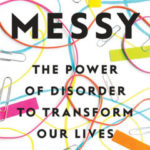In a talk at TEDx San Diego this past December, design theorist Benjamin Bratton delivered a self-described “rant against TED,” which he called “middlebrow mega-church infotainment.” Here’s an excerpt from Bratton’s talk, as reprinted on his website.
Have you ever wondered why so little of the future promised in TED talks actually happens? So much potential and enthusiasm, and so little actual change. Are the ideas wrong? Or is the idea about what ideas can do all by themselves wrong?
I write about entanglements of technology and culture, how technologies enable the making of certain worlds, and at the same time how culture structures how those technologies will evolve, this way or that. So the conceptualization of possibilities is something that I take very seriously. That’ s why I, and many people, think it’ s way past time to take a step back and ask some serious questions about the intellectual viability of things like TED.
So my TED talk is not about my work or my new book but about TED itself, what it is and why it doesn’t work.
The first reason is over-simplification.
To be clear, I think that having smart people who do very smart things explain what they are doing in a way that everyone can understand is a good thing. But TED goes way beyond that.
Let me tell you a story. I was at a presentation that a friend, an astrophysicist, gave to a potential donor. I thought the presentation was lucid and compelling (and I’m a professor of visual arts here at UC San Diego, so at the end of the day, I know really nothing about astrophysics). After the talk the sponsor said to him, “You know what, I’m gonna pass because I just don’t feel inspired… you should be more like Malcolm Gladwell.”
At this point I kind of lost it. Can you imagine?
Think about it: an actual scientist who produces actual knowledge should be more like a journalist who recycles fake insights! This is beyond popularization. This is taking something with value and substance and coring it out so that it can be swallowed without chewing. This is not the solution to our most frightening problems — rather this is one of our most frightening problems.
So I ask the question: Does TED epitomize a situation in which a scientist (or an artist or philosopher or activist or whoever) is told that their work is not worthy of support, because the public doesn’t feel good listening to them?
I submit that astrophysics run on the model of “American Idol” is a recipe for civilizational disaster.



